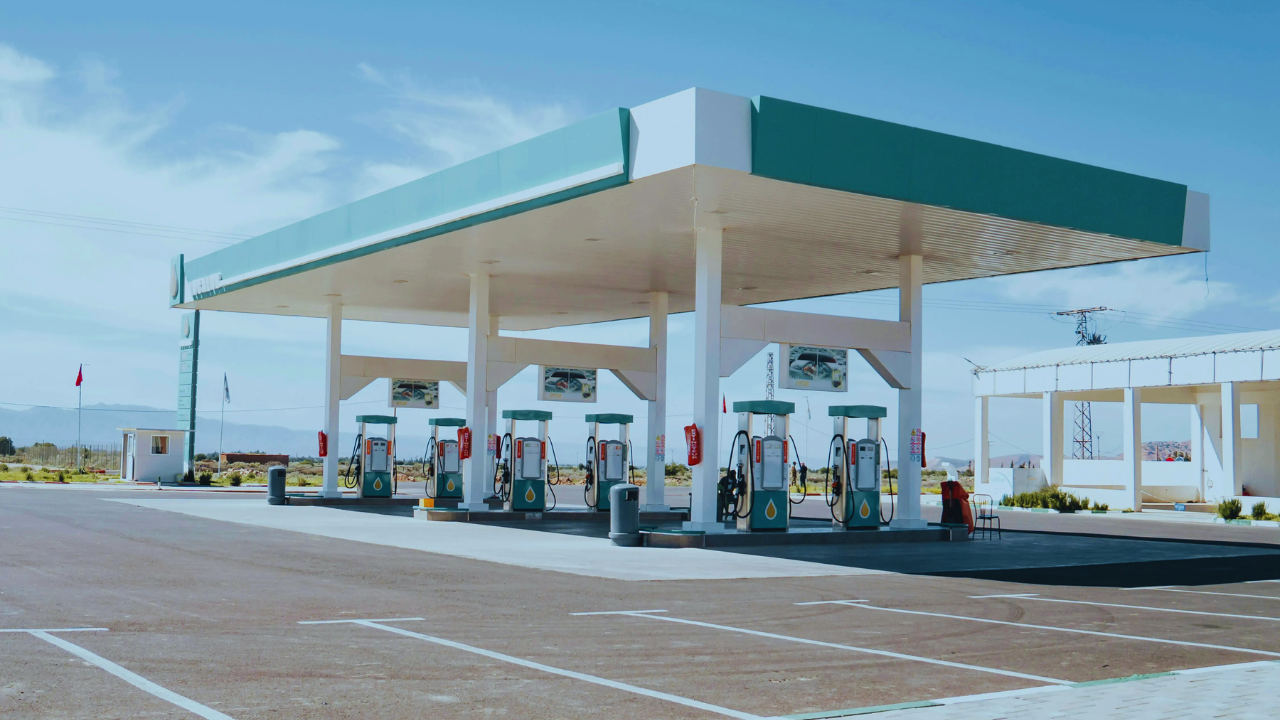The petrol pump industry plays a crucial role in supporting economies and ensuring smooth transportation systems across the globe. As we enter 2025, the landscape of this essential industry is undergoing significant transformation. Advancements in technology, such as the integration of AI-powered fuel dispensing systems and automated payment solutions, are streamlining operations and enhancing customer experiences. Simultaneously, the rise of electric and hybrid vehicles is nudging petrol stations to diversify, with many embracing EV charging infrastructure alongside traditional fuel services. Regulatory shifts, including stricter environmental policies, are also steering the industry toward greener practices.
The evolution of customer preferences, coupled with global sustainability goals, is pushing petrol pump operators to innovate and adapt rapidly. I will discuss and explore these dynamic changes and how they are shaping the future of petrol pumps in 2025.
Current Trends in Petrol Pump Operations
Petrol pumps are no longer just simple fuel stations; they are evolving into dynamic hubs equipped with modern technology and sustainable practices. Driven by advancements in technology, growing environmental consciousness, and shifting consumer expectations, operators are embracing these changes to ensure relevance and competitiveness in the rapidly transforming market.
| Key Trend | Description |
| Digital Payment Systems | Increasing adoption of mobile apps and contactless payment options. |
| Eco-Friendly Initiatives | Installation of EV charging stations and solar-powered petrol pump setups. |
| Automation | Automated fueling systems for enhanced efficiency and reduced wait times. |
| Loyalty Programs | Customized offers and discounts to retain and attract customers. |
Technological Innovations in Petrol Pumps
Technology is transforming petrol pumps into smarter, more efficient, and customer-friendly facilities. In 2025, several cutting-edge innovations are redefining how petrol stations operate, providing greater convenience for customers while improving sustainability and operational efficiency.
Contactless Fueling
The rise of fully automated, app-based fueling options is making petrol pumps more accessible and time-efficient. With contactless fueling, customers can select and pay for their fuel through mobile apps, eliminating the need for cash or card transactions. This innovation minimizes wait times, enhances security, and provides a seamless experience for tech-savvy consumers.
AI Integration
Artificial intelligence is playing a pivotal role in modernizing petrol pump operations. AI-powered systems are being employed for inventory management, ensuring that fuel levels are monitored and replenished proactively. Predictive analytics, enabled by AI, helps station operators forecast demand patterns, optimize resource allocation, and improve overall efficiency.
Renewable Energy Integration
Sustainability is a key focus for petrol pumps in 2025, with many adopting renewable energy solutions. Solar panels and wind turbines are being installed at petrol stations to generate clean energy for day-to-day operations. These setups not only reduce the carbon footprint but also lower operational costs, aligning with global efforts to promote environmentally friendly practices.
Regulatory Changes Impacting Petrol Pumps in 2025
Governments worldwide are implementing new policies to promote sustainability and safety in the petroleum industry. These regulations aim to reduce emissions, improve operational standards, and encourage the use of alternative energy.
| Regulation | Impact |
| Carbon Emission Standards | Petrol pumps must meet strict guidelines to reduce environmental impact. |
| Electric Vehicle Infrastructure | Mandatory installation of EV charging stations at petrol pumps. |
| Safety Protocol Updates | Enhanced measures to prevent accidents and spills. |
| Subsidies for Renewable Energy Use | Financial incentives for integrating renewable energy sources. |
Environmental Concerns and Sustainability Initiatives
As the world moves toward a greener future, the petrol pump industry is aligning its operations with global sustainability goals. With a heightened focus on reducing environmental impact, operators are implementing innovative measures to minimize their carbon footprint and promote eco-friendly practices. Here are some key sustainability initiatives making an impact:
Introduction of Biofuels
Many petrol pumps are now offering blended fuels that combine traditional petroleum products with biofuels such as ethanol or biodiesel. These biofuels are derived from renewable sources and produce fewer greenhouse gas emissions, making them an eco-friendly alternative. This initiative is not only reducing emissions but also supporting the growth of the biofuel industry.
Recycling Programs
Petrol pumps are adopting comprehensive recycling programs to manage waste responsibly. These initiatives include recycling used oil, plastic, and other materials generated during operations. Recycling efforts not only reduce landfill contributions but also promote sustainable waste management practices within the industry.
Energy-Efficient Equipment
To conserve energy, petrol pumps are upgrading their infrastructure with energy-efficient technologies. LED lighting, smart energy management systems, and advanced energy-saving machinery are becoming standard in modern stations. These upgrades help reduce energy consumption and operational costs while supporting environmental goals.
Consumer Behavior and Petrol Pumps
As consumer expectations evolve, petrol pumps are transforming their operations to meet modern demands for convenience, transparency, and sustainability. The growing emphasis on customer-centric services has pushed petrol stations to innovate and adapt.
| Consumer Expectation | Petrol Pump Response |
| Quick Service | Introduction of automated payment and fueling systems. |
| Transparent Pricing | Digital displays showing real-time fuel prices and tax breakdowns. |
| Green Alternatives | Availability of biodiesel and EV charging stations. |
| Value-Added Services | On-site convenience stores and car maintenance services. |
Challenges Faced by Petrol Pump Operators
While the petrol pump industry is advancing with technological and regulatory shifts, operators face several challenges that demand strategic navigation and adaptability. These challenges stem from global economic fluctuations, operational demands, and the fast-paced evolution of technology. Below are some key obstacles confronting petrol pump operators:
Fuel Price Volatility
Frequent and unpredictable changes in fuel prices due to global market dynamics pose a significant challenge. Fluctuations in crude oil prices, geopolitical tensions, and currency exchange rates directly impact profit margins and make financial planning difficult for operators. Managing these variations while maintaining competitive pricing for consumers is a constant struggle Petrol pump news.
High Operational Costs
The costs associated with running petrol pumps are steadily increasing. Upgrading infrastructure, hiring and retaining skilled staff, maintaining equipment, and adhering to stringent regulatory requirements add to operational expenses. This financial burden is especially challenging for smaller operators, who must find ways to remain profitable while managing these rising costs Petrol pump news.
Adapting to New Technology
While technological advancements offer numerous benefits, the initial investment in new systems and equipment can be substantial. Operators must also invest in staff training to effectively use and maintain advanced tools like automated fueling systems, AI-driven inventory management, and digital payment platforms. This transition often comes with a steep learning curve, posing a challenge for operators with limited resources or technical expertise Petrol pump news.
Future Outlook for Petrol Pumps
The petrol pump industry is poised for a transformative future as it embraces diversification and innovation to stay relevant in a rapidly changing world. The shift toward sustainability, alternative energy sources, and advanced technology is reshaping the traditional role of petrol stations and creating opportunities for growth and evolution.
Integration of EV Charging Stations
As the global adoption of electric vehicles accelerates, the incorporation of EV charging stations is becoming a cornerstone of the future for petrol pumps. Many stations are transitioning into hybrid hubs that cater to both traditional fuel-powered vehicles and EVs. This diversification not only meets the growing demand for electric vehicle services but also aligns with environmental goals.
Alternative Fuels
The future of petrol pumps will see a broader adoption of alternative fuels such as biodiesel, ethanol blends, and hydrogen. These eco-friendly options are gaining popularity as governments and consumers prioritize reducing carbon emissions. Petrol stations that offer these alternatives are likely to attract environmentally conscious customers and remain competitive.
Digital Technologies
The continued integration of digital technologies, including AI, IoT, and mobile apps, is set to redefine the customer experience. From seamless payment options to AI-driven inventory and maintenance systems, technology will enhance efficiency, reduce operational costs, and improve convenience for customers.
Collaborative Efforts
Collaboration between governments, private operators, and technology providers will be critical in shaping the future of petrol pumps. Public-private partnerships can drive the development of sustainable infrastructure, provide financial incentives for innovation, and ensure a smooth transition to greener practices.
Wrapping Up
The petrol pump industry in 2025 is at the crossroads of tradition and innovation. With technology revolutionizing the way fuel stations operate and sustainability driving policy changes, the future promises a more efficient and environmentally conscious industry. Petrol stations are no longer just refueling points; they are transforming into multi-service hubs catering to a diverse range of vehicles and customer needs. The integration of EV charging stations, digital payment systems, and eco-friendly fuel options signifies a shift toward a smarter and greener future.
While challenges such as rising operational costs and environmental concerns remain, the industry’s proactive embrace of innovation positions it for sustained growth. As the world continues to focus on sustainability and technological advancement, the petrol pump industry is poised to play a pivotal role in shaping the mobility solutions of tomorrow.
FAQs
What are the major trends in petrol pump operations for 2025?
In 2025, petrol pump operations will be focused on modernizing through digital payment systems that enhance speed and security. Eco-friendly initiatives, like EV charging and biofuel options, are aligning with global sustainability goals. Automation is improving efficiency by reducing wait times and streamlining fueling processes. Loyalty programs play a vital role in attracting and retaining customers by offering personalized discounts and rewards.
How are petrol pumps adopting sustainability practices?
Petrol pumps are actively integrating renewable energy sources such as solar panels and wind turbines to power their operations sustainably. They are offering biofuels blended with traditional fuels to lower emissions and cater to eco-conscious consumers. Recycling programs help manage waste efficiently, and energy-efficient technologies like LED lighting reduce power consumption. These initiatives contribute to a greener and more sustainable industry.
What technological advancements are shaping petrol pumps in 2025?
Contactless fueling systems enable customers to refuel and pay via mobile apps, ensuring a seamless and time-saving experience. Artificial intelligence (AI) is revolutionizing inventory management and maintenance by predicting demand and streamlining supplies. Renewable energy technologies, like solar panels, are powering petrol stations while reducing operational costs. These advancements enhance both customer experience and sustainability.
What are the new regulations impacting petrol pumps?
Governments are enforcing stricter carbon emission standards, requiring petrol pumps to adopt cleaner technologies and processes. Operators are mandated to install EV charging stations to support the global shift toward electric vehicles. Enhanced safety protocols focus on preventing accidents and ensuring proper fuel storage. These regulations encourage environmental responsibility and operational safety across the industry Petrol pump news.
How are consumer expectations influencing petrol pumps?
Consumers today expect quick and efficient services, prompting petrol pumps to adopt automated fueling and contactless payment systems. Transparent pricing through real-time digital displays fosters trust by detailing fuel costs and taxes. Eco-conscious customers demand green alternatives like biofuels and EV charging options. Value-added services such as convenience stores and maintenance facilities are enhancing overall customer satisfaction Petrol pump news.
What challenges do petrol pump operators face?
Fuel price volatility due to global market dynamics creates uncertainty and affects profitability for operators. High operational costs, driven by regulatory compliance and advanced technology investments, add to financial pressures. Adapting to new technologies like AI-powered systems requires significant initial investment and staff training. These challenges demand strategic planning and innovative solutions to sustain growth Petrol pump news.
What does the future hold for petrol pumps?
Petrol pumps are evolving into multi-functional hubs, integrating EV charging stations and alternative fuels like biodiesel and hydrogen. Digital technologies, such as AI-driven systems, will streamline operations and enhance customer experiences. Collaboration between governments and private operators will drive the adoption of sustainable practices. The focus will remain on diversification, green energy, and innovation to meet the needs of the future.




